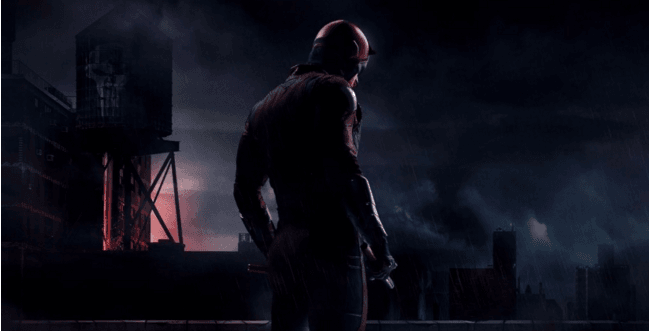
It’s been days since I binge watched Netflix’s ‘Daredevil’ Season 2 and now there is a void in my life. With no more ‘Daredevil’ to watch, I find myself thinking about Daredevil. I thought about the season finale first, fresh on mind, then my mind wanders backward to the beginning. There is one scene I keep replaying. Actually, just one line that I hear in my head until I catch myself verbalizing it.
“Just this once.”
It’s a bit of dialogue spoken by Matt Murdock to Frank Castle shortly before the Punisher’s apparent death. Frank wants to kill the criminal known as the Blacksmith and Matt, out of character and with the sign of the cross, gives his blessing. Why does he do this? There are pragmatic reasons, of course. Standing in Frank’s way to punish the one guy Frank wants to punish most, the man most responsible for his family’s death, would result in a fight that could end them both. Or Matt may want to enlist Frank’s help because the Blacksmith is tied to the Hand and those odds are quickly mounting against Daredevil acting solo. These are fine reasons, but Matt’s “we do not kill” rule isn’t pragmatic. It’s idealogical.
Frank Castle realizes this. The Punisher responds that if Daredevil crosses that line, there’s no going back. That certainly seems true for Frank. He started shooting criminals and shows no signs of stopping. However, as the Punisher’s trial and Karen’s detective work showed, Frank is a special case. He was shot in the head that night his family died, resulting in little or no empathetic response. Despite his adopted moral code, Frank is serial-killer-esque. This “line crossing” dynamic needn’t be true for Matt. There is no reason why Daredevil could not cross the line and then cross it right back.
Which brings me to why I love this line. “Just this once.” I grew up reading Batman. Bruce Wayne has a code too. It results in murders who have proven to be impossible to contain and impossible to rehabilitate returning to the street to kill again on a predictable schedule. The Joker kills dozens at a time. He kills and paralyzes sidekicks and loved ones. Batman should have come to the same conclusion that Daredevil comes to here. His way isn’t working. Other writers have taken their morally superior characters to the killing fields. Most notably, Superman, who in both the classic comic and the modern film he kills a fellow Kryptonian who vows to kill humans until his dying day. The fan reaction to this capital punishment was and still is mostly negative, but we have been trained to think in unrealistic absolutes.
Daredevil has no more plans to start putting down purse snatchers than Superman did to light up Lex Luthor, but in this moment of strength, not weakness, they both allowed for an exception. Whether you agree with these exceptions or not, you should respect the writers for letting their character act realistically in the face of evil—especially when the permanence of death itself has come into question. We deserve heroes and villains that more closely reflect our world. Daredevil should be, and thankfully now is, nuanced.
